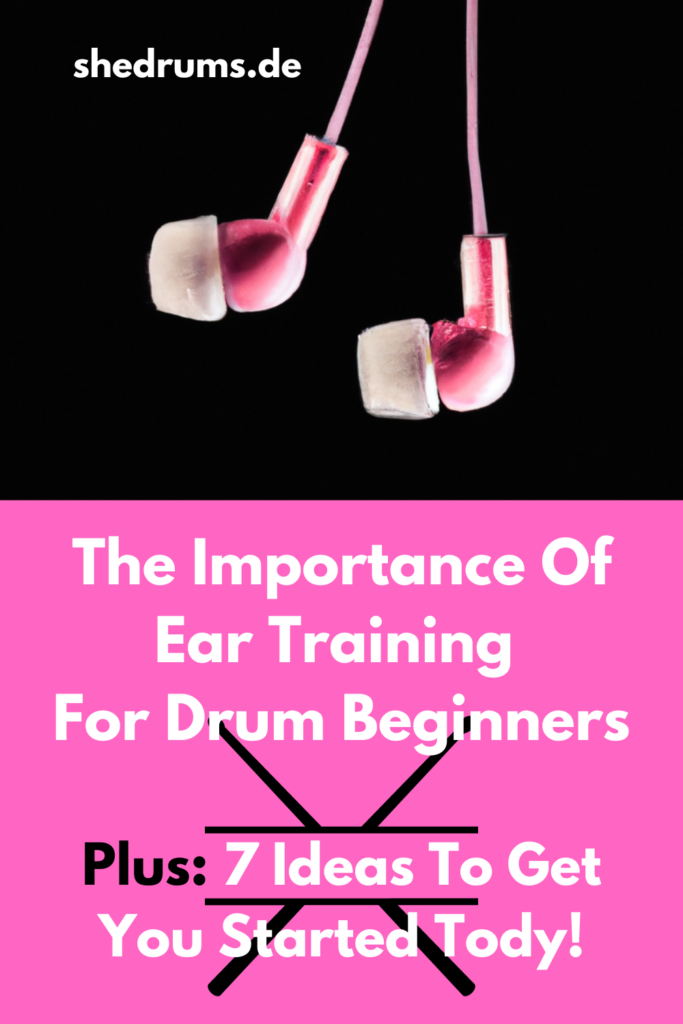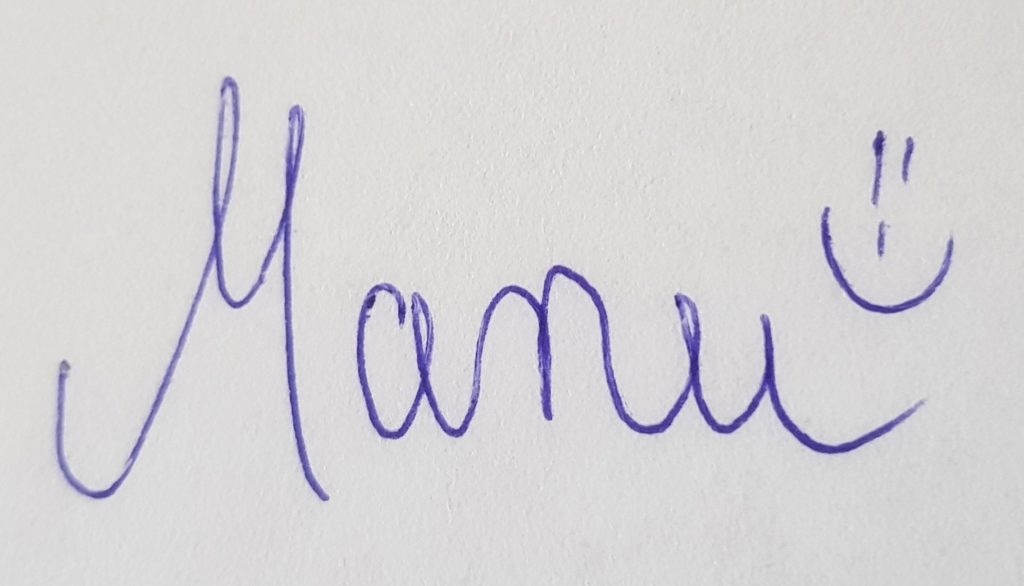
How important is ear training for beginner drummers?
You see, learning to play the drums is not just about keeping a steady beat.
It’s also not about nailing fancy fills or mastering certain drumming techniques.
Instead, learning the drums demands a keen sense of
- listening,
- limb independence
- and musicality.
For this reason, ear training is a vital aspect of becoming the drummer you want to be.
That’s why in today’s drumming guide, I’m going to provide you with 7 outstandingly helpful ideas to enhance your listening skills.
Plus:
We’ll explore the significance of ear training for beginner drummers to start with.
This will help you understand and train your ears in the most practical way.
For Beginner Drummers: Why Ear Training Matters
Table Of Contents
Ear training is the basis for identifying and interpreting musical elements by ear.
You could also say:
Whenever you listen to a piece of music, you’ll be able to hear what the OG drummer is playing, thanks to proper ear training.
Depending on your knowledge of music theory, you’ll also be able to transcribe
- drum notes,
- dynamics, and maybe even
- the tonality of the music you’re listening to.
That’s why you shouldn’t ignore the importance of ear training.
After all,
Solid listening skills will make you a better musician.
That’s because they will help you express yourself on the drum set more freely.
And yes:
There are even more benefits to a well-developed ear.
6 More Benefits Of Ear Training For Beginner Drummers
Ear training is crucial for any drummer.
Why so?
Just take a look at the following benefits.
1) You’ll Establish A Solid Timing
Drummers like you and me can develop a precise sense of timing and rhythm, thanks to ear training.
This is a key element in establishing your
- unique musical voice,
- helping you to keep tempo and
- establish an irresistible groove.
Furthermore, well-trained ears are extremely helpful when jamming with other musicians.
2) You’ll Improve Your Musical Expression Significantly
When you train your ears as a drummer, you’re able to control your dynamics way better.
This will allow you to interpret music more emotionally, adding fine nuances and different feelings to your way of playing the drums.
In addition, you’ll be able to respond to what other musicians are playing.
That’s a huge benefit, no matter when jamming with
- other people, including your drum teacher,
- playing drums to your favorite recordings,
- or practicing with a cool video on YouTube.
3) It Becomes Way More Easy To Communicate With Other Musicians
Making music is always some sort of communication, and communication is highly simplified by trained ears.
That’s because when you understand what other musicians play, you can respond to musical cues immediately.
You’ll also be able to play “from the heart”.
Drums sheet music is awesome, don’t get me wrong.
But in the end, it’s just a piece of paper with drumming ideas printed on it.
Ear training will help you make more out of them.
As a drummer, you’ll be able to play between the lines.
4) Your Way Of Playing The Drums Will Become More Creative Thanks To Ear Training
As drummers, we want to be creative, don’t we?
The good news is:
Ear training boosts your creativity as well.
As I said before, it helps you become more flexible when playing the drums.
This means, you can adapt to various musical situations more easily.
Also, you’ll be able to improvise at a new level of creativity thanks to ear training.
And you’ll probably enjoy this benefit as well:
Beginner drummers who do ear training over a longer period of time also train their imagination.
This means:
At some point, you’ll be able to imagine how a certain drum beat or fill will sound like in your head.
This is directly linked to the concepts explained in the superb book The Inner Game of Music by Barry Green.
This book is a superb read, not only for beginners on the drum set.
5) Mesmerizing Your Drum Beats And Fills Becomes Less Difficult
Drumming doesn’t have to be complex to be awesome.
However, sometimes the music asks for more difficult to play
- drum patterns,
- fills or
- full compositions.
That’s when ear training again is a huge benefit:
It will improve your ability to remember your drum patterns more easily.
Ever wanted to express yourself more freely as a drummer?
Mesmerize your fills and beats from now on.
6) Thanks To Ear Training For Beginner Drummers, You Learn How To Transcribe Any Drum Part You Like
As I mentioned before, a trained ear significantly helps you to transcribe and chart any drum notes you like.
Pick a recording you like, listen to it carefully, and start transcribing.
By doing so, you’ll improve your ability to
- recognize grooves and fills,
- expand your drumming vocabulary
- and become an overall more versatile drummer.
Also, ear training can help you master different drumming styles, including
- jazz,
- rock,
- funk or
- latin
over time.
That’s another reason why beginner drummers shouldn’t neglect ear training.
Speaking of:
7 Ideas On How Drum Beginners Can Train Their Ears
We’ve talked about the many benefits of solid listening skills for drum starters.
Now, let’s take a look at 7 practical ways on how you can train your ears.
Idea 1: Listen Actively
By actively listening to
- songs,
- drumming exercises and
- live music at concerts,
you will train your drummer’s ear naturally over time.
If you like drums sheet music too, you can also start watching drumming videos, including the drum notes that are played.
Idea 2: Record Yourself
Have you ever recorded yourself practicing the drums?
If not, you might start to do so now.
This will greatly improve your listening skills.
Also, regularly recording your drumming is a great way to get instant feedback on
- how you sound,
- look and
- feel
playing the drum set.
And no:
You don’t need to share your drumming videos, or have fancy equipment to start recording.
A standard smartphone does the trick for beginner drummers.
Tip 3: Practice To Drumless Tracks
Drumless tracks are basically original songs minus drums.
Sometimes, they also offer an integrated click.
This makes them a great asset for practicing the drums.
Use it from now on!
Tip 4: Slow Down Songs To Simplify Ear Training For Beginner Drummers
Transcribing drum parts is an incredible way to train your ears.
However, it can be a challenge, especially for beginners.
That’s why it’s a great idea to slow down songs or drum exercises you want to learn.
You can do so using drumming software or changing your video settings on YouTube.
Tip 5: Practice Call And Response
Another superb idea for training your ears is practicing call and response.
This means:
You listen to a rhythm and immediately try to mimic it on the drums.
Intermediate drummers also use another type of call and response as a part of jazz drumming.
And I also teach a music game called “Vorspiel-Nachspiel-Spiel” (German for “Play-Mimic-Game”) in my drum lessons for kids.
Tip 6: Clap, Speak Or Sing Your Drum Parts
By
- clapping,
- speaking or
- singing
drum patterns, you internalize their rhythmic structure and improve your sense of timing.
Also, you’ll be able to really understand what you’re playing.
The reason for this is simple:
Vocalization and rhythmic patterns are a great match, helping you to reproduce them.
Ear training for beginner drummers is, after all, about sharpening various of your skills.
Understanding the way rhythm works is a big part of it.
Tip 7: Focus On The Groove
The final idea on ear training for beginner drummers is simple, but highly effective:
Focus on the groove.
This means:
You pay close attention to the groove and feeling of the drumming you listen to.
The next step is to try to replicate the feel of the rhythms you heard.
Focusing On The Groove is a fun yet demanding practice.
That’s why you should start with replicating one beat at a time.
If this works well, take the difficulty to the next level and replicate more
- beats,
- drum fills
- and full compositions.
You’ll be surprised how your way of drumming will improve. 🙂
So, which ear training idea will you try out today?
Cheers,

